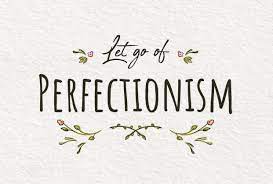Why you can’t get laid,
There can be many reasons why someone may be struggling to get laid, and it’s important to remember that every person’s situation is unique. Some possible reasons include

1) Lack of confidence.
A lack of confidence can make it difficult to approach potential partners or make a good impression. It can be caused by a variety of factors such as past rejections, low self-esteem, or negative self-talk.
Here are a few things that may help with a lack of confidence:
1) Practice self-care.
Practicing self-care is an important aspect of building self-confidence. When you take care of your physical, emotional, and mental well-being, you’ll feel better about yourself and be more able to approach potential partners with confidence. Some ways to practice self-care include:
>Eating a healthy diet. Eating a healthy diet is an important aspect of self-care and can play a role in building self-confidence. When you fuel your body with nutritious foods, you’ll have more energy and vitality, which can help you feel better about yourself and approach potential partners with more confidence.
>Exercise regularly. Exercising regularly is a crucial aspect of self-care and can play a role in building self-confidence. When you engage in physical activity, you can help boost your mood, reduce stress, and improve your overall sense of well-being.
>Get enough sleep. Getting enough sleep is an important aspect of self-care and can play a role in building self-confidence. When you get enough sleep, you’ll feel more alert and focused, and you’ll have more energy to tackle the day’s activities.
>Practice stress-reduction techniques. Practicing stress-reduction techniques is an important aspect of self-care and can play a role in building self-confidence. When you reduce stress, you’ll feel more relaxed and better able to handle the challenges and demands of everyday life.
2) Challenge negative thoughts.
Challenging negative thoughts is an important aspect of building self-confidence. Negative thoughts can affect your self-esteem, self-worth, and overall outlook on life, and it can be difficult to build self-confidence when you’re constantly telling yourself negative things.
3) Set small goals.
Setting small goals is an important aspect of building self-confidence. When you set small, achievable goals, you’ll be able to see progress and feel a sense of accomplishment, which can help boost your self-confidence.
4) Surround yourself with supportive people.
Surrounding yourself with supportive people is an important aspect of building self-confidence. When you have people in your life who uplift and support you, you’ll feel better about yourself and be more able to approach potential partners with confidence.
2) Poor hygiene.

Poor hygiene can be a barrier to getting laid and can also affect self-confidence. Maintaining good hygiene is important for both physical and mental well-being, and it is essential for making a good impression on others. Some ways to maintain good hygiene includes: showering or bathing regularly, brushing and flossing your teeth twice a day, washing your hands frequently, trimming and grooming body hair, cleaning your ears regularly, washing your face daily, using deodorant and wearing clean clothes.
3) Being too shy or passive.
Being too shy or passive can be a barrier to getting laid. If you have a tendency to be shy or passive, it can be difficult to approach potential partners and express your interest. To work on being less shy or passive, try the following:
>Practice socializing. Start by socializing in small groups, and gradually work your way up to larger groups.
>Speak up more. Make an effort to speak up more in conversations and express your opinions.
>Take small risks. Push yourself to take small risks, such as starting a conversation with a stranger, and gradually increase the level of risk.
>Get out of your comfort zone. Try new things, and put yourself in unfamiliar situations, this will help you become more comfortable with the unknown.
>Be confident. Remember that confidence is not the absence of fear, it’s the ability to act in spite of it.
4) Lack of social skills.
Lack of social skills can be a barrier to getting laid, as it can make it difficult to approach and connect with potential partners. To improve your social skills, try the following:
>Practice active listening. Pay attention to others when they are speaking, and show that you are listening by nodding, asking questions, and responding appropriately.
>Learn to make small talk. Small talk is an important social skill that can help you connect with others, practice making small talk with friends, family, or strangers, in different settings.
>Work on your body language. Nonverbal communication, such as eye contact, facial expressions, and posture, can have a big impact on how others perceive you.
>Be aware of your tone of voice. Your tone of voice can convey a lot of information, and it can affect how others perceive you.
>Seek help from a therapist or counselor. A therapist or counselor can help you work on specific social skills, or address underlying issues that may be impacting your social skills.
>Practice empathy. The ability to understand and share the feelings of others can help you build deeper connections and relationships.
>Take a class or workshop. Consider taking a class or workshop on communication, networking, or public speaking to improve your.
5) Being too aggressive.
Being too aggressive can be detrimental to one’s relationships and interactions with others. It can lead to conflict, misunderstandings, and damaged relationships. It can also be perceived as rude or disrespectful. It is important to be aware of one’s own behavior and strive to communicate effectively and respectfully with others.
6) Being too picky.
Being too picky can make it difficult for a person to make decisions, form relationships, or find satisfaction in life. It can also limit opportunities and make it harder for others to please or understand them. Being picky is normal, but when it becomes excessive it can lead to dissatisfaction and frustration. It’s important to find a balance and to be open to new experiences and perspectives. Having a clear idea of what is truly important to you and being willing to compromise on less important matters can also help.
7) Being in the wrong social circles.
Being in the wrong social circles can have a negative impact on a person’s well-being. Social circles can influence an individual’s behavior, beliefs, and values. Being around people who engage in negative or harmful activities can lead to an individual participating in those activities as well. Additionally, being in a social circle that doesn’t align with one’s own values or goals can lead to feelings of disconnection and dissatisfaction.
It’s important for an individual to surround themselves with people who align with their personal values and support their goals and aspirations. It’s also important to be aware of the activities and attitudes of those in one’s social circles and to make changes if necessary.
8) Being too dependent on alcohol or drugs.
If you are too dependent on alcohol or drugs can have serious negative effects on a person’s physical and mental health, relationships, and overall well-being. Dependence on alcohol or drugs can lead to addiction, which is a chronic and progressive disease characterized by an inability to control the use of a substance despite its negative effects on one’s life.
Alcohol and drug dependency can also lead to health problems such as liver disease, heart disease, and mental health issues such as depression and anxiety. It can also cause financial, legal, and social problems. It is important for individuals who feel they may have a problem with alcohol or drugs to seek help and support, whether it be through therapy, support groups, or rehab.
9) Being financially unstable.
Financially unstable can cause a lot of stress and can affect various aspects of one’s life such as mental and physical health, relationships, and overall well-being. Financial instability can lead to problems such as high levels of debt, difficulty paying bills, and difficulty meeting basic needs. It can also cause an individual to have to make difficult decisions, such as cutting back on necessities or taking on additional work, which can have a negative impact on overall well-being and quality of life.
To improve financial stability, it is important to create a budget, reduce expenses, increase income, and consider financial planning. It is also important to be aware of the resources available to help you manage your finances, such as financial counseling, debt management programs, and government assistance programs.
10) Being emotionally unavailable.
Being emotionally unavailable can make it difficult for an individual to form and maintain close relationships, both romantic and platonic. Emotional unavailability can manifest in different ways, such as being closed off, not being able to express emotions, or not being able to form close connections. This can make it difficult for others to understand or connect with the emotionally unavailable person, and can lead to feelings of loneliness and isolation.
It can also cause problems in romantic relationships, as a lack of emotional availability can make it hard for partners to feel heard or understood. To improve emotional availability, it is important for individuals to work on self-awareness and understanding of one’s emotions, and to develop the ability to communicate them effectively. Additionally, therapy or counseling can be beneficial in addressing the underlying causes of emotional unavailability.
11) Being physically unappealing.
Feeling physically unappealing can have a negative impact on an individual’s self-esteem and confidence. Society often puts emphasis on physical appearance, which can make individuals who do not fit the standard feel inadequate. However, physical appearance is just one aspect of a person and does not define their worth. It’s important for individuals to recognize that beauty comes in many forms and that everyone has unique qualities that make them special.
Additionally, it’s important to focus on self-care and overall health, rather than just physical appearance. Taking care of one’s physical and mental health, eating a balanced diet, and engaging in regular exercise can help to boost self-esteem and confidence. It’s also important to surround oneself with positive and supportive people who will appreciate you for who you are.
12) Being dishonest or untrustworthy.
Dishonest or untrustworthy can damage one’s relationships and reputation. When people cannot trust or rely on an individual, it can lead to a lack of trust and respect from others, which can make it difficult to form and maintain healthy relationships. Dishonesty can also lead to legal and financial problems. Being honest and trustworthy is a fundamental part of building and maintaining healthy relationships, whether it be with friends, family, or in a professional setting.
It is important to be honest, even when it is difficult, and to take responsibility for one’s actions. It’s also important to be consistent and transparent in one’s communication and behavior, in order to build trust and credibility. If someone has a history of dishonesty or untrustworthiness, it may be beneficial for them to seek therapy or counseling to address the underlying issues.
13) Being too busy or focused on career.
Being too busy or focused on one’s career can lead to neglecting other important aspects of one’s life, such as relationships, personal well-being and health. It can also cause stress and burnout. It’s important to find a balance between work and other aspects of life, such as family, friends, hobbies and self-care. Setting boundaries, learning to say no to non-essential tasks, and making time for things that bring joy and fulfillment can help to maintain a healthy work-life balance.
Additionally, it’s important to be mindful of the impact that a demanding career can have on one’s well-being and to take steps to mitigate it by engaging in self-care activities, setting realistic goals, and seeking support. It’s also important to periodically evaluate one’s priorities and make sure that they align with one’s overall well-being and happiness.
14) Being too judgmental or critical.
Too judgmental or critical can be harmful to relationships and interactions with others. It can make people feel dismissed, disrespected, and can cause conflicts and misunderstandings. It can also lead to feelings of isolation and loneliness as others may choose to distance themselves from someone who is often judgmental or critical. It is important to be aware of one’s own thoughts and behaviors and to strive to be more open-minded and non-judgmental in interactions with others.
Better to recognize that everyone is unique and that people have different experiences, beliefs and values which shape their perspectives and actions. Being more understanding and empathetic can help to build stronger relationships and create a more positive environment. It’s also important to focus on the positive aspects of people and situations and to communicate any concerns or criticisms in a constructive and respectful manner. Moreover, seeking help from therapy or counseling can be beneficial in addressing underlying issues that may contribute to judgmental or critical behavior.
15) Being in the wrong location.
Being in the wrong location can affect an individual’s overall well-being, safety and quality of life. Factors such as a lack of job opportunities, poor air quality, high crime rate, or lack of access to necessities such as healthcare and education can all have a negative impact. Being in a location that does not align with one’s values or goals can lead to feelings of disconnection and dissatisfaction.
It’s essential for an individual to consider their needs and priorities when deciding on a location to live. Researching a potential area and considering factors such as cost of living, job opportunities, and access to necessities can help to ensure a better fit. If someone is feeling unfulfilled or unsafe in their current location, they may consider relocating to a more suitable area. However, this is not always possible or practical, and in such cases, seeking support and finding ways to improve the situation can be an alternative solution.



